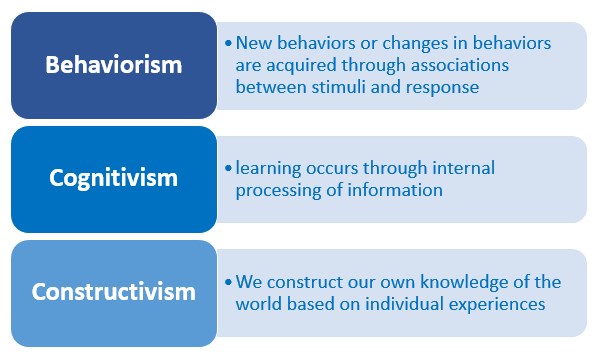
Behaviorism
The focus of behaviorism is on observable behavior and the environmental factors that influence it. Based on what I did using behaviorism, it is useful for memorization and math problems. According to my experience, solving those questions which have only one correct answer, it is helpful to use behaviorism. When I was remembering vocabulary before, I read those vocabulary once, and then directly started to practice. I would practice again and again until I got full mark. Behaviorism is more like muscle memory. You are corrected every time when you had wrong answer, then you remember the correct one.
Cognitivism
Cognitivism emphasizes the mental operations necessary for learning, such as memory, problem-solving, and perception. I had a good time since I met a teacher who used cognitivism. It is a Chinese literature course. Students learned a lot of poems from ancient literati. The most enjoyable thing in this class is guessing what were the poets doing and thinking when they were writing the poem. The teacher taught we to be the poem, not to be the reader if we want to understand a poem. We imagined that we were back to the time during writing the poem, and we had an image of it based on what we know about the poem, the poet and the historical events, then we understood. That was very interesting since you learn something which you find it on your own based on your cognition.
Constructivism
Constructivism places a strong emphasis on how students actively develop their own knowledge through their own experiences and interactions with the outside world. Constructivism can be explained by science experiments; for example, chemistry, physics, biology. You can see how the knowledge is shown and proved with your eyes, learn and prove the knowledge with your experience. Furthermore, you can create your own understanding and knowledge when you are using constructive learning method.
In conclusion, cognitivism emphasizes thought processes and problem-solving, behaviorism focuses on modifying behavior through reinforcement and feedback, and constructivism emphasizes how students actively construct knowledge through practical applications and interactions.
Here is my comment for post 1:
https://junweili335.opened.ca/edci-335-blog1/